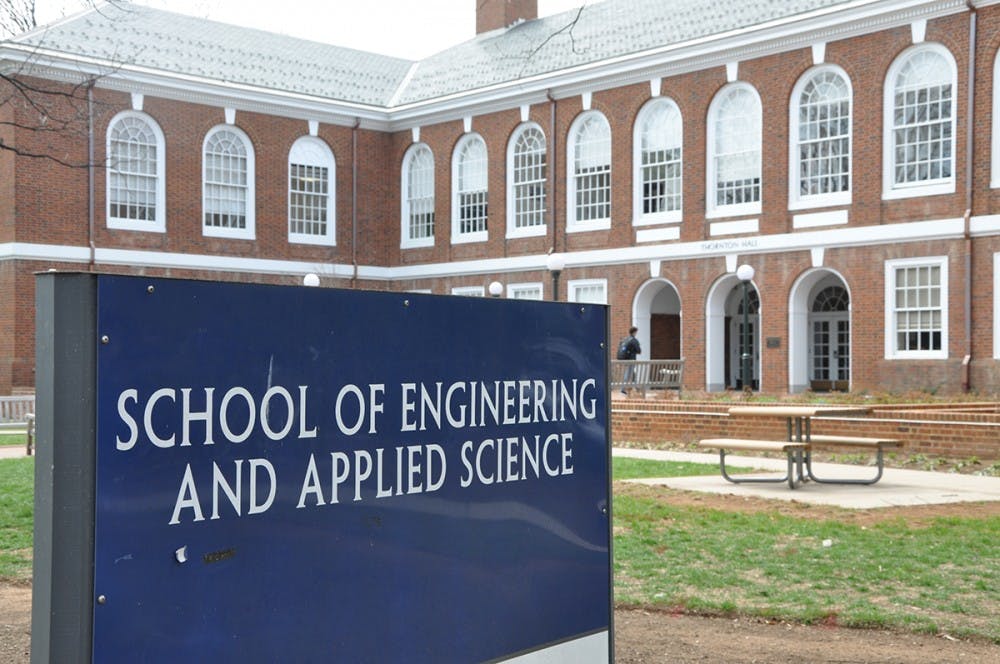The Computer Science Undergraduate Curriculum Committee is considering curriculum changes to both the Bachelor of Science and Bachelor of Arts degrees for computer science. During this current fall academic semester, the CS UGCC has initiated its first pilot program with the goal of full implementation by the fall of 2020.
These changes come from considerations in a 2013 nationwide report that provided an overview of recommendations for computer science curriculum. The report proposed a set of goals to encompass the flexibility of the field, including designing a more broadly based curriculum that would prepare its graduates for a variety of professions in fields like computational finance or chemistry and informatics. Specific recommendations include developing a system-level perspective, problem solving skills, a project-based component and broadening the participation of students in computer science by building a more flexible minor.
The report also recommended incorporating new knowledge areas to the curriculum by implementing courses that focus on Information Assurance and Security — a set of controls and processes that intend to protect information and information systems — and Networking and Communication, which includes topics like web development and network security.
These guidelines encouraged the Computer Science Department to focus on components in the curriculum that are missing from the current computer science major.
“We were trying to identify areas that we could improve,” Assoc. Computer Science Prof. Mark Sherriff said. “In computer science, the material is changing rapidly, so we are constantly trying to find ways to teach these classes to get the material across.”
The process to change the computer science curriculum also involved talks with the Computer Science Industrial Advisory Board — a group made up of companies, such as Capital One and Leidos, that hire students — as well as current computer science students and faculty.
“We interviewed nearly every CS faculty member individually and asked what they would like to see in the program,” Sherriff said. “We also had open houses where students could come and give input.”
According to Sherriff, the pilot program allows a gradual change in curriculum, where refinement takes place in later iterations of the initial pilot program. Although this approach lengthens the timeline of program implementation, it also allows the department to try the new curriculum and classes and receive feedback from students and professors following each pilot program.
Eventually, the finalized curriculum will need to receive approval from the School of Engineering, the computer science department, the CS UGCC and the College. The College is also involved in this process, as curriculum changes would affect Bachelor of Arts Computer Science majors in the College.
The primary changes include revisions of the current required courses — or Foundation Courses — that aim to reorganize and refocus core content to align with the 2013 recommended curriculum changes.
Eventually, the department hopes to introduce Tracks — sets of additional required and elective CS courses that allow students an opportunity to specialize in different computer science fields.
The Undergraduate Curriculum Committee has already approved the teaching of two classes for the current fall semester in the first initiation of the pilot program. Students in the program are taking Data Structures and Algorithms and Computer Organization and Architecture.
“These new courses are fast paced, especially for first-years, but the professors do an excellent job at tending to the needs of the individual students and are actively looking for feedback,” said Roy Jad, a first-year Engineering student in the pilot program. “The small class sizes make this close attention possible, so it will be interesting to see how circumstances change with the implementation of the curriculum pilot into larger lectures.”
“We are realigning our material to tell a better story and have a more gradual movement through the courses,” Sherriff said.
In this first pilot program, there are about 55 students. Sherriff said most students in the Bachelor of Sciences Computer Science program are first- or second-years that have taken an introductory computer science course or have received AP credit for the class. Additionally, some third-year students are also enrolled in the program, hoping to acquire a Bachelor of Arts in Computer Science.
“The other thing were are trying to do is that the B.A. and B.S. have a different set of requirements and we are trying to bring those closer in line with each other so that BA and BS students have a similar experience in the core classes,” Sherriff said.
Next semester, the program will incorporate classes such as Computer Organization and Architecture 2 (CS2501) and Data Structures and Algorithms 2 (CS2501). From there, the CS department will gain feedback from faculty and pilot students to refine the material and classes.
Sherriff said he hopes that the program will be implemented in full effect by fall 2020.
Although the proposed changes to the computer science curriculum may be drastic, with changes affecting more than a few classes, the evolution of curriculum occurs in nearly every discipline, according to Sherriff.
“This is what we do as academics — we try and find the ways that are the best ways to present the material and create new learning experiences so that students have a good experience and have the skills they need,” Sherriff said. “It’s always evolving.”







